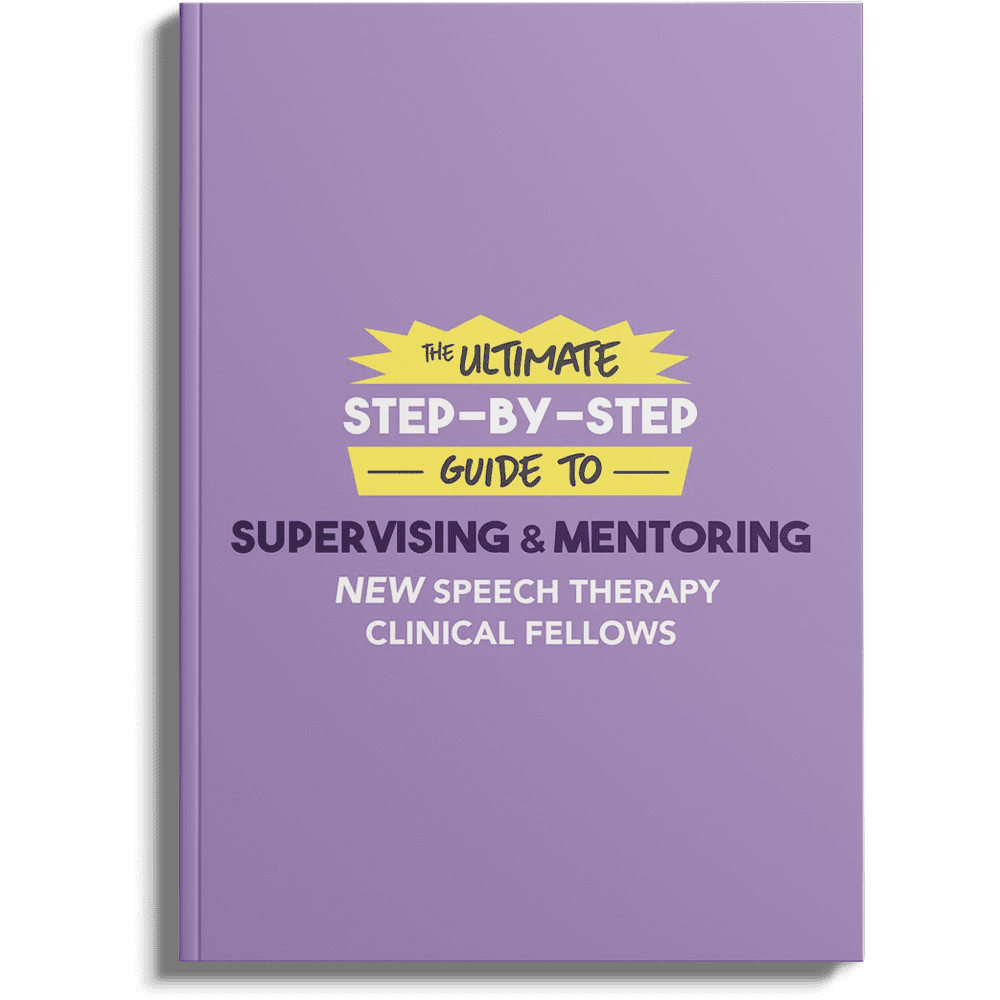Supervising a speech-language pathology clinical fellow (CF) is a pivotal role in shaping the future of our profession. As a mentor, you have the opportunity to guide a new clinician through their transition from graduate school to independent practice, fostering their professional growth and ensuring they provide high-quality care to clients. This comprehensive guide will delve into the key aspects of effective supervision, offering practical tips, strategies, and resources to help you navigate this rewarding journey.
The Importance of Supervision
Supervision is not merely a requirement for ASHA certification; it is an essential component of professional development for both the clinical fellow and the supervisor. Effective supervision:
- Ensures Client Well-being: Provides oversight and guidance to ensure that clients receive appropriate and ethical care.
- Facilitates Professional Growth: Helps CFs develop clinical skills, confidence, and a deeper understanding of the field.
- Promotes Ethical Practice: Reinforces the importance of adhering to ASHA’s Code of Ethics and professional standards.
- Enhances the Supervisor’s Skills: Challenges supervisors to reflect on their own practice and refine their teaching and mentorship skills.
Key Elements of Effective Supervision
-
Establishing a Collaborative Relationship:
- Build rapport and trust with your CF.
- Establish clear expectations and communication channels.
- Foster a supportive and open learning environment.
-
Developing a Supervision Plan:
- Create a structured plan outlining goals, objectives, and timelines for the CF’s development.
- Incorporate a variety of learning experiences, including direct observation, co-treatment, case discussions, and professional development activities.
- Utilize the ASHA Clinical Fellowship Skills Inventory (CFSI) to track progress and identify areas for growth.
-
Providing Constructive Feedback:
- Offer timely, specific, and actionable feedback that focuses on strengths and areas for improvement.
- Use a variety of feedback methods, such as verbal discussions, written notes, and video recordings.
- Encourage self-reflection and critical thinking.
-
Fostering Professional Development:
- Encourage your CF to attend conferences, workshops, and continuing education courses.
- Provide opportunities for them to participate in research, advocacy, and community outreach.
- Support their pursuit of additional certifications and specializations.
-
Addressing Challenges and Ethical Dilemmas:
- Discuss ethical considerations and potential conflicts of interest.
- Help your CF develop problem-solving and decision-making skills.
- Provide guidance on navigating difficult situations and advocating for clients.
Additional Tips for Successful Supervision
- Be a Role Model: Demonstrate professionalism, clinical competence, and ethical practice.
- Be Flexible: Adapt your supervision style to meet the individual needs of your CF.
- Be Patient: Allow your CF time to learn and grow at their own pace.
- Be Encouraging: Celebrate successes and provide positive reinforcement.
Conclusion
Supervising a clinical fellow is a rewarding experience that can have a lasting impact on the future of our profession. By investing time and effort into developing a collaborative relationship, providing constructive feedback, and fostering professional growth, you can empower your CF to become a confident and competent speech-language pathologist. Remember, effective supervision is a two-way street, and both you and your CF will benefit from the learning and growth that occurs throughout the process.



